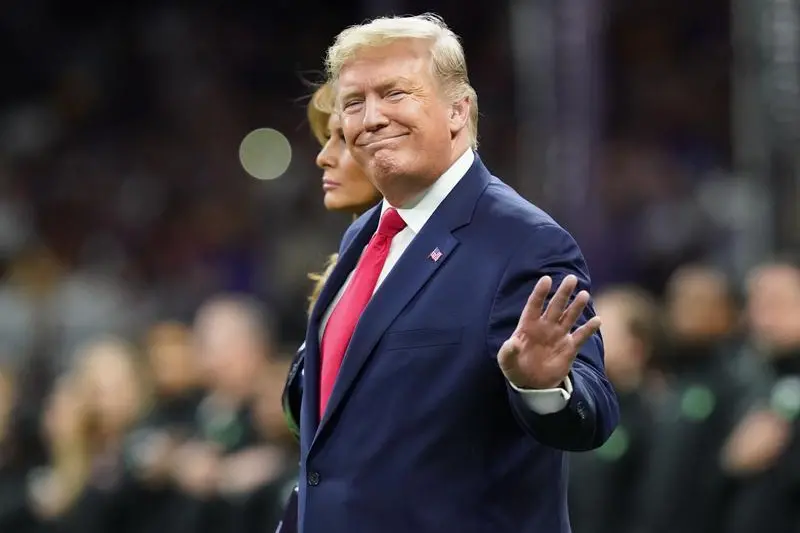PHOTO
SAN FRANCISCO - Donald Trump is adding fake currency news to his trade-war armory. The U.S. government will stop accusing Beijing of yuan manipulation as part of a limited tariff deal that will be signed on Wednesday, Bloomberg reported on Monday. It was a dubious tag to start with, born of presidential ire. But its arguable success makes it a useful stick for the White House. That’s worrying for those with growing trade deficits like Vietnam.
Removing the designation is a disingenuous concession. The Treasury Department made the accusation in August after the People’s Bank of China allowed its currency to depreciate past seven yuan to the U.S. dollar, a line that had held for more than a decade. It seemed logical given worsening economic conditions, but it came after Trump complained Beijing hadn’t fulfilled pledges of buying more goods from American farms.
The label raised questions because it didn’t seem like China met conditions for such a move. A major U.S. trading partner can be deemed a manipulator if it meets three criteria: undertaking one-sided intervention in currency markets for a certain period; having a current-account surplus of at least 2% of GDP; and a bilateral goods trade surplus of at least $20 billion. A May Treasury report said China had met only one of these.
It was a symbolic slap for the People’s Republic but could have more substantive consequences for other countries. Tariffs can be one of the penalties America can impose once the designation is attached. Those were already ratcheting up for China. Beijing will pledge it won’t devalue its currency to boost exports as part of this week’s so-called Phase One trade pact. Other countries that haven’t been widely hit by import taxes are still vulnerable.
Vietnam, for example, was added to the currency watch list in May. Its goods trade deficit with America jumped to more than $50 billion through November, already surpassing the overall 2018 imbalance of $39.5 billion. It had also breached the current-account surplus threshold in the May report, meeting two of the three conditions.
Malaysia and Singapore were also added to the watch list last year for the first time. Now that tensions are cooling with China, U.S. trade hawks may turn their attention to others. The Beijing precedent means the White House won’t necessarily adhere to rules to drum up more faux currency reports.
CONTEXT NEWS
- The U.S. Treasury Department will cease to refer to China as a currency manipulator in its report on the foreign-exchange practices of major trading partners due out this week, Bloomberg reported on Jan. 13. Treasury added the designation in August 2019 after President Donald Trump criticized China for not fulfilling promises related to trade talks. It was the first time the U.S. government had imposed the label since 1994.
- The two countries are scheduled to sign a so-called Phase One pact on Jan. 15. As part of that deal, they are expected to pledge that they will not use currency devaluation to make their exports more attractive.
(Editing by Antony Currie and Amanda Gomez)
© Reuters News 2020




















